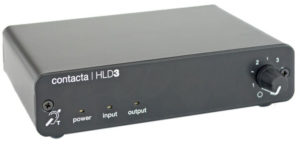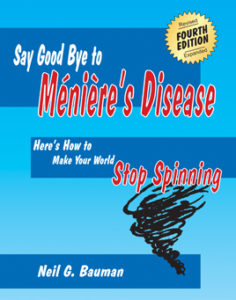Among most hard of hearing people, the International Phonetic Alphabet seems to be a deep, dark secret. This should not be, as the International Phonetic Alphabet is a most useful communicating aid. Let me explain.
In the early days of two-way radio, conditions were often less than ideal. Thus, over the airwaves, it was difficult to tell exactly which word the person at the other end had spoken. This was especially true of names. Spelling the names out wasn’t much better because under poor communication conditions, several letters of the alphabet sound nearly the same.
Misunderstanding even one letter can lead to disaster. Just imagine a pilot misunderstanding landing instructions and landing on the wrong runway, or a military gunner hearing the wrong coordinates and wiping out his own troops in a “friendly fire massacre”.
Obviously, radio operators needed some means to remove this ambiguity so they could understand, and pass on all messages correctly and with confidence. The development of the International Phonetic Alphabet was the answer. Today it is used in all branches of the military, by pilots, and by two-way radio operators around the world.
What has this to do with hard of hearing people? Just this. For many hard of hearing people, communication conditions are always less than ideal. Thus, we miss, or misunderstand, a lot more than we care to admit. Let me illustrate this with a real-life example.
When I am on the phone (where I can’t speechread) and someone is trying to give me their name or address (or email address where even one letter wrong won’t let it work), I am often at a loss. Even after several repeats, I still can’t catch the name. So, to help me out, the person spells it, but unfortunately, to me much of the alphabet essentially sounds the same. For example, I generally cannot hear the difference between letters such as “b”, “d”, “g”, “p”and “v”.
When spelling the word doesn’t help, the person, thinking they have a good solution, says, “the first letter is ‘b’ for butter”, but for all I know, they said “g” for gutter or “p” for “putter” so I still don’t have a clue how to spell their name.
This is where the International Phonetic Alphabet shines. What is good for radio operators is also good for hard of hearing people.
The way the International Phonetic Alphabet works is that there is a specific list of 26 carefully-chosen words, each one beginning with a different letter of the alphabet. Here is the International Phonetic Alphabet (and the proper pronunciation in brackets after each word).
A Alpha (AL fah)
B Bravo (BRAH voe)
C Charlie (CHAR lee
D Delta (DELL tah)
E Echo (EK oh)
F Foxtrot (FOKS trot)
G Golf (GOLF)
H Hotel (hoe TELL)
I India (IN dee ah)
J Juliet (JEW lee ETT)
K Kilo (KEY loe)
L Lima (LEE mah)
M Mike (MIKE)
N November (noe VEM ber)
O Oscar (OSS kar)
P Papa (PAH pah)
Q Quebec (kee BECK)
R Romeo (ROE mee oh)
S Sierra (see AIR ah)
T Tango (TAN go)
U Uniform (YOO nee form)
V Victor (VIK tor)
W Whiskey (WISS kee)
X Xray (ECKS ray)
Y Yankee (YANG kee)
Z Zulu (ZOO loo)
By having one, and only one “word” representing each letter of the alphabet, there is now only 26 possibilities instead of the almost infinite number of words if a person doesn’t use the International Phonetic Alphabet. This makes understanding which letter is meant ever so much easier.
Let’s say I’m talking on the phone and you are trying to tell me your last name, which happens to be “Czwalina”. Not surprisingly, I just can’t get it, so you use the International Phonetic Alphabet to spell out the letters for me.
You would say, I spell “Cwalina”—charlie, whiskey, alpha, lima, india, november, alpha, and I would write down “cwalina” and know I have it right no matter how weird your name may appear to me.
But it gets even better. Not only is each word carefully chosen so it doesn’t sound like another word, but each syllable is also unique (with 2 exceptions). Thus if I can only get part of the word, I still know which letter it had to be. For example, if all I hear is the sound “trot”, I know you are meaning the letter “F”, because the only place this sound occurs in the International Phonetic Alphabet is in the word “foxtrot”. Likewise, in the above name, if all I heard of the second last letter was the sound “ber” I know that it had to be an “N” as the “ber” sound is only used in the word “november”, which stands for the letter “N”. This is the real power of the International Phonetic Alphabet.
The two exceptions for unique syllables are the “kee” sound in the three words “Quebec”, “Whiskey” and “Yankee”, and the “lee” sound in the words “Charlie” and “Juliet”. Apart from these duplicates, there is no ambiguity. Even with the “kee” and “lee” sounds, you can listen to see if the “kee” sound is in the first syllable (Quebec) or the second (Whiskey or Yankee) and the “lee” sound is in the first syllable “Lima” or the second “Charlie”.
As it happens, the above name contains both occurrences of the “lee” sound—“charlie” and “lima” but you easily know which letter they refer to from their position in the word—whether the first or second syllable.
In practice, I find that few people—hearing, or hard of hearing—know the International Phonetic Alphabet so they make up their own words to represent each letter. To be sure I understand what they are saying (and a lot of times I don’t), I tell them I’ll repeat back the word using the proper word in the International Phonetic Alphabet, and ask them to tell me if it was correct or not. Sometimes it takes a few tries, but eventually I finally get it right.
As you can see, using the International Phonetic Alphabet really works for me. In addition, the hearing person learns the value of the International Phonetic Alphabet themselves, and why it is so useful to us (hard of hearing people).
Now that you know just how useful the International Phonetic Alphabet can be, don’t keep it a secret. Your homework is to memorize it yourself, then use it whenever you have trouble understanding a word in the future. You’ll be pleased how much easier it can make communicating.



Leave a Reply